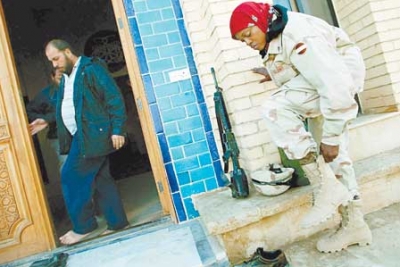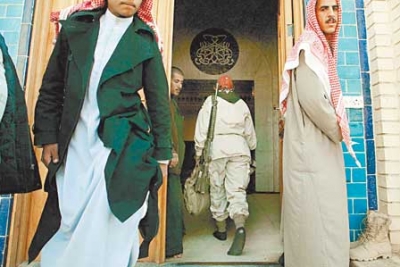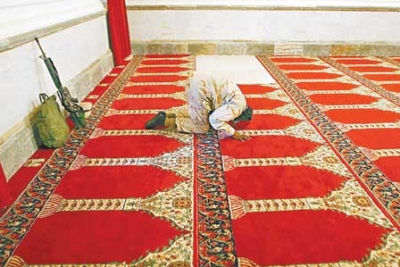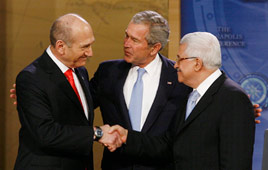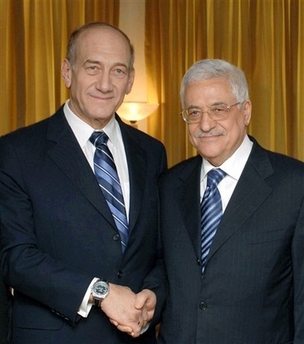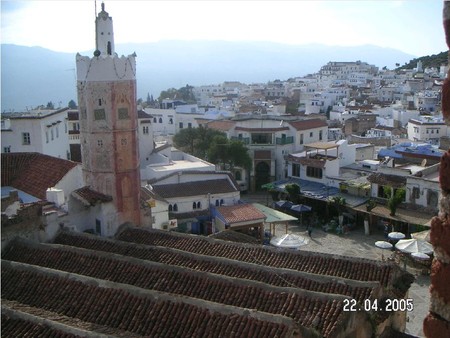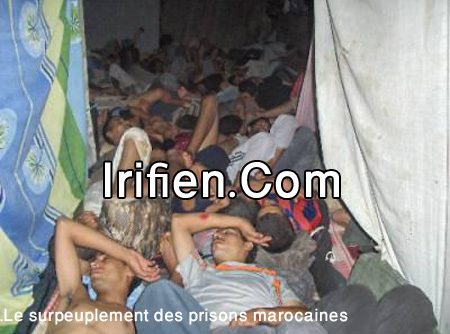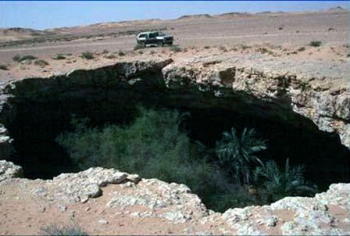By Kaveh L Afrasiabi
Tuesday’s Arab-Israeli peace summit in Annapolis, Maryland, is supposed to be about resolving long-standing Palestinian issues, the Golan Heights, and other contentious matters. But, increasingly, it is framed in the United States and Israeli media as a dual-purpose conference, the other being the containment of Iran.Thus, an editorial in the Jerusalem Post writes that “the process that Annapolis seeks to launch will be inherently conditional on Western success against the Iranian challenge … The idea that holding an Arab-Israeli peace summit would be a setback for Iran is a valid one.” The more liberal Ha’aretz went even further by stating the goal of the Annapolis conference to be the formation of a “global coalition against Iran”.
Similarly, in the US a number of pundits have painted Annapolis as a “means of sorts of cementing a coalition against Iran and its allies”, to paraphrase Tamar Cofman Wittes of the Saban Center for Middle East Policy. According to Cofman and a host of media pundits paraded on American television news programs, Annapolis is President George W Bush’s wakeup call to the world on the “Iran threat”.
It comes as little surprise, then, that the US military in Iraq has quickly pinned on “Iran-backed militias” the responsibility for the recent explosion at Baghdad’s pet market which killed more than a dozen people – call it pre-Annapolis fuel for “blaming Iran”.
Interestingly, a powerful Iraqi politician, Abdul Aziz al-Hakim, head of the Supreme Islamic Iraqi Council, has questioned the US’s accusations against Iran, asking the US to “offer more proof” of Iran’s alleged role in inciting violence in Iraq. That is a fair request, particularly since both the US and Iran are now poised to hold their fourth round of direct, bilateral talks on Iraqi security. And, per the US military’s own admission, there has been a substantial reduction of violence in Baghdad and elsewhere in Iraq, suggesting a more cooperative role on Iran’s part.
Lest we forget, the Iraq Study Group report closely linked the fate of Iraq with the Arab-Israeli peace process and, in hindsight, a fruitless conference in Annapolis, that is, one that would be exploited by the US and Israel to deflect attention from the core issues by focusing on Iran, will likely have negative ramifications for Iraq’s security. That is, it will embolden the anti-US forces that are in the retreat mode as a result of the US’s “surge” policy.
In other words, a new surge in anti-US activities can be expected if the Annapolis summit fails to produce any tangible results – as predicted by Iran’s leaders as well as the leaders of the so-called “rejectionist camp”, including Hamas and the Islamic Jihad in Palestine, but not so Syria, which has opted for a high-level presence at Annapolis at the last minute.
According to the Jerusalem Post, “The more the US focuses on its unfolding confrontation with Iran, the more it is argued that weaning Syria away from the axis with Iran can be a very effective tool in waging that confrontation.” Syria has leveraged its spoiler role for Annapolis’ inclusion of the Golan Heights on its agenda. This in turn has prompted some Israeli politicians to consider prioritizing the “Syria track” over the “Palestine track” at the summit.
But, Israel and the US do not call all the shots at the conference and Syria in particular, which has participated in a number of summits and conferences in the past in pursuit of regaining its territories in Israel’s hands, can increase the diplomatic pressure on Israel in Annapolis. And so can other states of the Arab League, such as Egypt and Saudi Arabia, that have made clear their unwillingness to go along with the Bush administration’s division of the Middle East into “moderate” versus “radical” camps.
The big question, then, is to what extent the Arab participants at Annapolis will be successful in repelling the US-Israeli map of action against “Iran-led extremism”, which has a clear nuclear dimension, aimed at taking advantage of the Arab world’s fears of an Iranian bomb? Another question is what kind of concessions does Israel have to make on the Arab front to make gains at the Iran front? Will Israel go as far as appeasing Syria, to wrest Damascus away from Tehran at his critical juncture in the Iran nuclear crisis?
Already counting on Syria’s participation as a mini-victory against Iran, Israel and the US are simultaneously aware of the possibility for a similar mini-victory for Iran in the event the conference does not yield any tangible results, and thus confirm Iran’s loud predictions of its failure. Intent on depriving Iran of that opportunity, the US and Israel will need more than a compliant media to sell the image of a successful conference; substantive progress on the Arab-Israeli plate must be demonstrated, otherwise the net result will be a publicity success for Iran and Hamas.
Iran’s calculations and counter-measures
According to a Tehran University political science professor, the reason Tehran is highly skeptical about the results of the Annapolis conference is that “all the principal participants are weak. You have a lame-duck president in the White House who completely forgot the Palestinian issue for seven years, a weak Israeli prime minister [Ehud Olmert] and an even weaker Palestinian leader [President Mahmoud Abbas], who does not lead more than a minority of Palestinians. How is a durable breakthrough possible under these conditions when the principal participants are not powerful enough to make the necessary concessions? Can Olmert stop the illegal settlements or order their removal from the Palestinian lands? The answer is no.”
Such sentiments can be found aplenty in Iran, prompting President Mahmud Ahmadinejad to echo the sentiment of Hamas leaders, who are highly critical of those Arab leaders participating at Annapolis, by stating: “Attending the conference shows a lack of political intelligence. The name of those who give concessions to the Zionist occupiers by attending will not be remembered for goodness.”
Iran’s Foreign Minister Manouchehr Mottaki, on the other hand, has stated, “The end result of all these conferences leads to a further erosion of Palestinian rights.” Mottaki has been touring the Gulf Cooperation Council states and has been delighted that Sultan Qabus of Oman in particular has praised the latest International Atomic Energy Agency (IAEA) report on Iran’s nuclear program as “successful” and has supported Iran’s nuclear rights.
As with Ahmadinejad’s participation in last week’s Organization of Petroleum Exporting Countries summit in Saudi Arabia, the purpose of Mottaki’s diplomatic tour of the region is to provide a counter-reference to the efforts of the US and its European allies to depict Iran negatively, that is, as a nuclear weapons proliferator in breach of United Nations Security Council resolutions that is determined to dominate the region.
From Iran’s vantage point, the hidden agenda of the Annapolis summit is to cause a regional isolation of Iran and to escalate the pressures on it over the key nuclear issue, warranting certain policy adjustments on Tehran’s part, especially on the nuclear issue.
Annapolis summit and Iran’s nuclear crisis
Many Tehran political analysts are in agreement that if Tehran is not careful, the US and Israel will exploit the Annapolis summit to undermine Iran’s position in the ongoing nuclear standoff, by
inflicting a public relations coup against Iran depicted as “extremist” and out of step with mainstream Middle East.
Any overt linkage of this summit with Iran has its own perils, potentially backfiring on the US and Israel, showing them to be not serious on the core Palestinian issues and, as Tehran has put it, pursuing “their own interests and objectives”. On the other hand, a soft linkage, whereby Syria’s pro-Iran proclivity can be chipped away and Iran’s international standing suffers, has its own dividends.
“Iran should follow the strategy of avoiding confrontation,” writes a Tehran analyst, Ibrahim Motaghi. After all, the latest IAEA report, despite its minor shortcomings, has been rightly viewed by Tehran as a timely plus, enhancing its hands in the nuclear negotiations and weakening those of the US. Yet, the Annapolis summit and the likely negative spins against Iran around it are aimed at eroding Iran’s nuclear gains and facilitating US-led coercive diplomacy at the UN and beyond.
But, one wonders if, indeed, this is a wise policy on the US’s part, which has been relatively blind to what another Tehran analyst, Elias Hazrati, has termed as “substantial reduction of radical and offensive positions in Iran’s foreign policy during the past few months”. In his “The road for compromise with Tehran is open”, Hazrati has, however, placed disproportionate blame, for lack of adequate progress in resolving the nuclear crisis, on the government of Ahmadinejad, without adequately taking into consideration the US’s schizophrenic, contradictory, approach that, as in the run-ups to the Annapolis summit, fuels the very Iranian radicalism that it purports to disfavor. This it does by falsely accusing Iran in Iraq and ignoring the impressive results of Iran-IAEA cooperation in a relatively short time.
“We are committed that the IAEA’s next report will be even more positive,” Iran’s Deputy Foreign Minister Abbas Araghchi told the French paper Le Monde. According to Araghchi, Iran and France are now engaged in a “real discussion” over Lebanon, and Iran is prepared to take confidence-building steps on the nuclear issue.
Closing the ‘confidence gap’
“The work plan agreed by the secretariat and Iran in August, in which Iran has finally committed itself to address the outstanding issues relevant to its nuclear activities, is proceeding according to schedule,” IAEA’s director General, Mohamad ElBaradei informed the IAEA’s board of governors last week. Iranian officials, on the other hand, have revealed that the IAEA has formally closed its investigation of two lingering issues, that is, the history of P-1 and P-2 centrifuges, and uranium metals, in letters sent to Iran.The problem, however, is that whereas ElBaradei has reported “good progress” on Iran-IAEA cooperation, this has not had any impact on the US-led road to tougher UN sanctions on Iran, except perhaps small speed bumps. China, which balked at participating at the last “Five plus One” meeting on Iran (the Security Council’s permanent members plus Germany) , is now under pressure to go along with tougher sanctions, as is Germany, which like China has much to lose in lucrative business with Iran as a result of a sanctions regime.
But, again, a major problem for the US’s Iran policy is none other than the IAEA itself, whose findings, of the absence of any military diversion, etc, serve Iran’s purpose of rallying the Non-Aligned Movement (NAM), comprising the majority of UN member states, behind its cause, in light of the NAM’s resolution at the recent IAEA meeting that warned against the meddling influence of “certain governments” in the IAEA’s relations with Iran.
Iran’s ambassador to the United Arab Emirates, Hamid Reza Assefi, has aptly stated: “Initially the American were referring to ElBaradei’s reports, but now that ElBaradei and his team at the agency have had sufficient opportunity to do their own investigations, the Americans reject them and claim that this report is not acceptable.”
All eyes are now set on the upcoming meeting of the European Union’s foreign policy chief, Javier Solana, and Iran’s nuclear negotiator, Saeed Jalili, scheduled in London on November 30. Solana has told the press that he has been given “complete authority” by the Five plus One to negotiate with Iran “regarding a long-term agreement”. That means the US, too, and, henceforth, it is important to see how the US’s delegation of authority to Solana will or will not intersect with its, and Israel’s, map of action with regard to Iran.
Certainly, the summit diplomacy of both the US and Israel with respect to Iran has the potential to digress substantially from the course of action presently contemplated by Solana, that is, the “dual suspension” of sanctions and Iran’s enrichment program. Lest we forget, the last time Solana and the Iranians met, the reaction of US Secretary of State Condoleezza Rice was to denigrate it as “unimportant”. Is the US willing to revise its traditional antipathy toward the Solana channel now? For now all the vital signs do not suggest a positive answer to this question.
“Jalili will propose new ideas to Solana,” Iran’s Foreign Ministry spokesperson has announced and, for his part, Jalili has told a press conference in Tehran that “confidence-building is a two-way road”, calling on the UN Security Council to show a “positive reaction to ElBaradei’s report”.
As for the less than positive aspects of ElBaradei’s report, such as his criticism that Iran has been acting “reactively” rather than “proactively”, Iran’s envoy to the IAEA, Ali-Asghar Soltanieh, has effectively debunked this criticism by pointing out that per the IAEA-Iran workplan, “The nature of the ‘workplan’ is such that we should first receive the questions and then respond. This is not a negative way of thinking, but a practical method.”
With respect to El Baradei’s request from Iran to implement the intrusive Additional Protocol of the nuclear Non-Proliferation Treaty (NPT), [1] the head of Iran’s atomic energy organization, Gholamreza Aghzadeh, has called it “premature”. Iran halted its voluntary adoption of the Additional Protocol in reaction to the IAEA’s dispatch of Iran’s dossier to the UN, and the re-adoption of this protocol now serves as an ace in Iran’s nuclear diplomacy, particularly with respect to Europe, which is somewhat at odds with the US on the latter’s “zero-sum” insistence on the complete halt of Iran’s sensitive nuclear work.
By leaving the door for future compliance with the IAEA’s demand with respect to the Additional Protocol, Iran now has the unique chance of gaining on the issue of suspension, Suspension is legally problematic given the absence of treaty constraints warranting a long-term suspension of Iran’s nuclear fuel work under the articles of the NPT, particularly since the UN resolutions on Iran fail to specify the duration of the requested suspension.
Despite such egregious shortcomings of the UN resolutions, the US and France and Britain continue to refer to them and demand their full compliance by Iran as if they contain a comprehensive resolution of the substantive issues of the Iran nuclear crisis; the fact is they do not.
Only by resorting to bad-faith negotiations, misinterpreting the “suspensions” as “termination”, as Britain’s ambassador to the UN, John Sawers, has done, can this strategy possibly succeed. [2] Iranians are, however, too proud and politically savvy to fall into such a trap. Cognizant of the structural limits and constraints of the UN Security Council initiatives against them, the Iranians are more and more seriously pondering the pros and cons of Solana’s “dual suspension” proposal. This could be at minor variance with ElBaradei’s “double suspension” preceding it, simply by not scaling the two ramparts equally, ie, suspension of sanctions may become permanent after only a temporary suspension of Iran’s confidence-building suspension of uranium enrichment and reprocessing activities.
In conclusion, the potential for a successful resolution of the Iran nuclear crisis has now gained unprecedented momentum and erasing that momentum by a “peace conference” is also a distinct possibility that, hopefully, will be avoided by the triumph of reason and a peace mindset at the Annapolis summit.
Notes
1. Interestingly, in his oral report at the IAEA meeting, ElBaradei admitted that the report’s reference to his agency’s “diminishing” knowledge of Iran’s nuclear program due to the lack of implementation of Additional Protocol is not necessarily an Iran-specific problem but rather a more widespread problem with the numerous states that have yet to adopt this protocol: “However, as with all states that do not have an Additional Protocol in force, we are unable to provide credible assurance about the absence of undeclared nuclear material and activities,” ElBaradei stated.
2. For more on this, see the author’s Iran, nuclear challenges The Iranian Journal of International Affairs, Spring 2007.Kaveh L Afrasiabi, PhD, is the author of After Khomeini: New Directions in Iran’s Foreign Policy (Westview Press) and co-author of “Negotiating Iran’s Nuclear Populism”, Brown Journal of World Affairs, Volume XII, Issue 2, Summer 2005, with Mustafa Kibaroglu. He also wrote “Keeping Iran’s nuclear potential latent”, Harvard International Review, and is author of Iran’s Nuclear Program: Debating Facts Versus Fiction.

